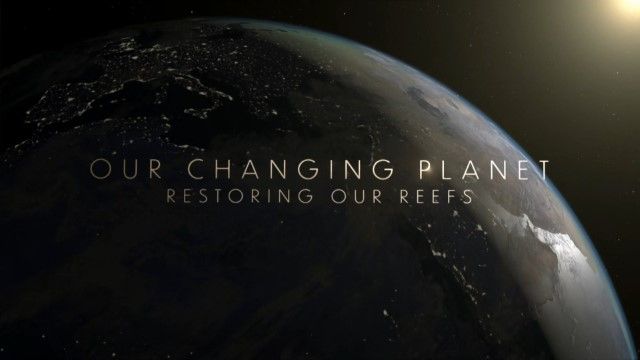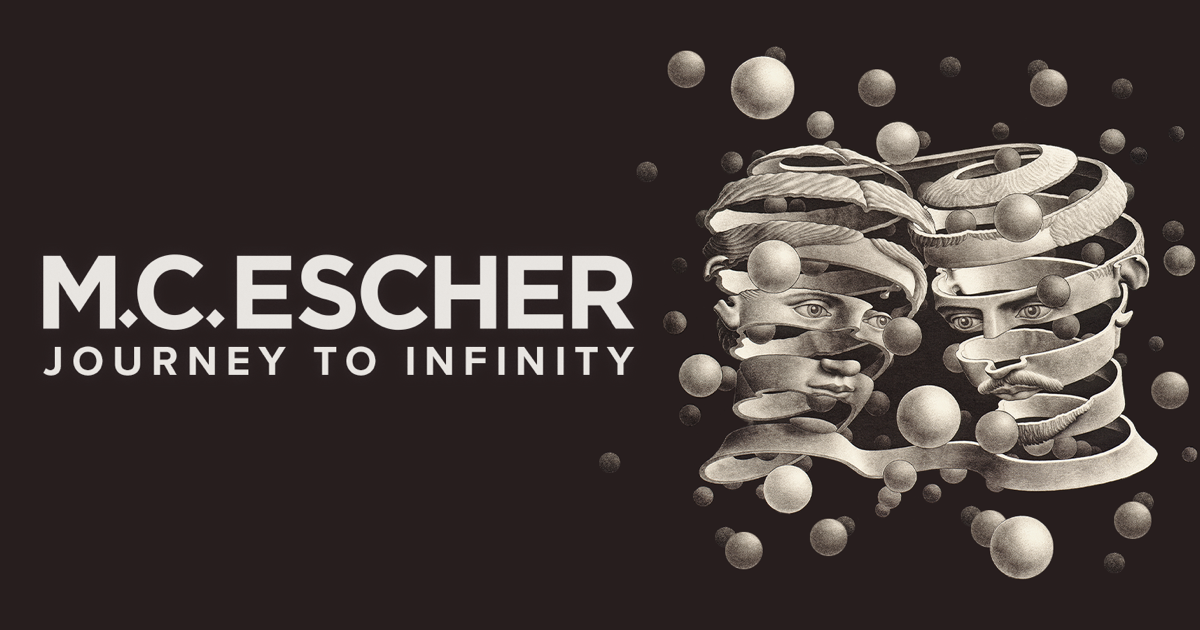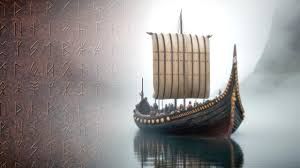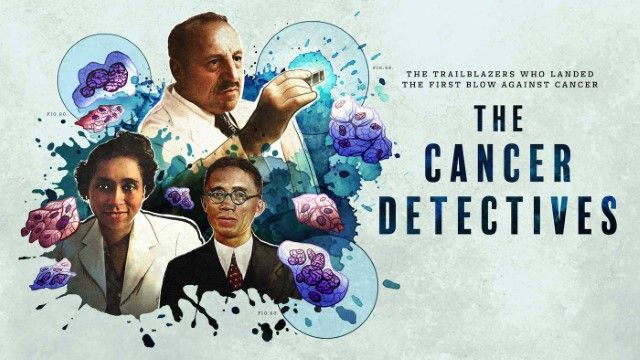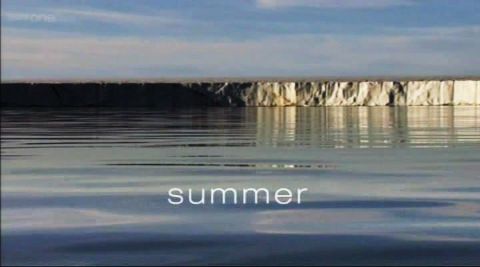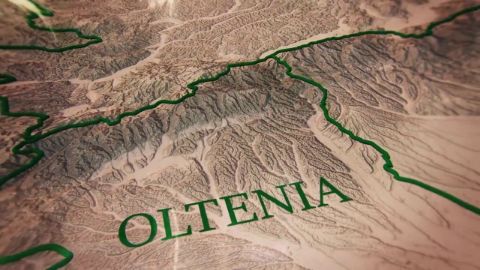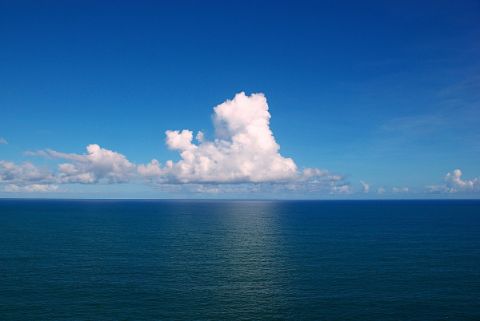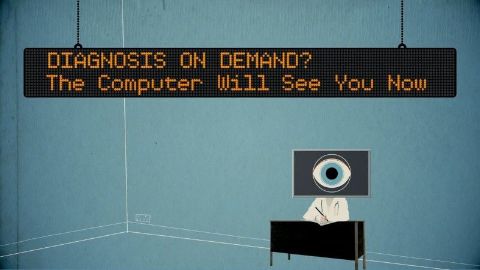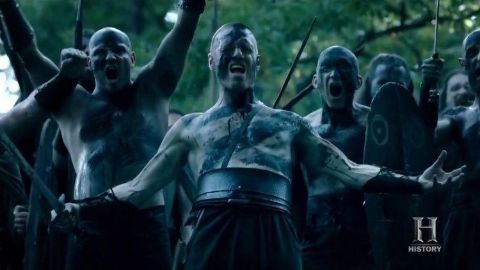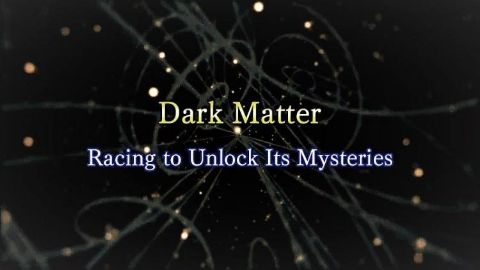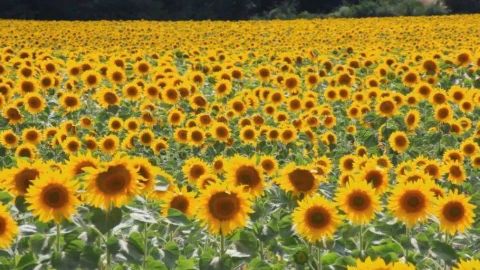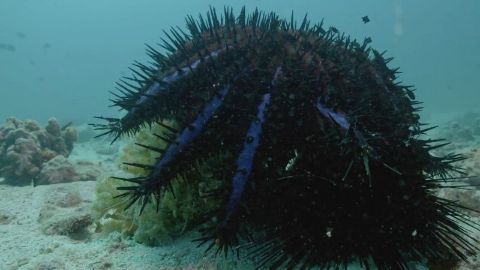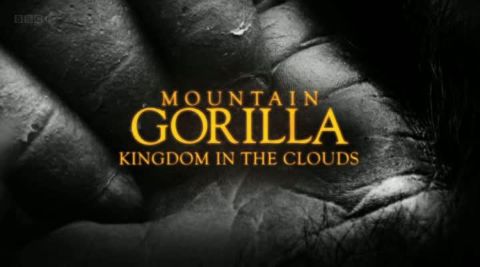Latest Documentaries
Delve into the digestive system with this lighthearted and informative documentary that demystifies the role gut health plays in our overall well-being.
2024 • Health
In the third year of this seven-year project examining the issues facing the planet’s most threatened ecosystems, Dr. M. Sanjayan visits the Maldives to take an in-depth look at coral reefs and the urgent efforts to help them survive climate change.
S3E1 • 2024 • Nature
The life and work of M.C. Escher is presented primarily through his own words in the form of his writings being read against a backdrop of images associated to him, including archival footage of himself and images of his drawings. Many further details are provided by surviving family members. Escher himself considered what he did being caught between the worlds of art and mathematics - he not very good at either - his drawings always having an element of geometry. He made a conscious decision to work in monochromatic black and white realizing that he would be missing being able to convey ideas that are inherent with color. The evolution to two of his later periods is discussed, namely his series of drawings of the human eye, and what would become his ultimate fascination, that of the concept of infinity, whether it be real, as in the circle or the study of a man viewing a picture of himself viewing a picture of himself and so on, or perceived through illusions, such as his never-ending staircase. The documentary is buttressed by commentary from fan, musician Graham Nash who believes his brilliance has not yet been fully appreciated. Further Information
2021 • People
We often assume that advanced technology will make it easy for aliens to colonize space. But what if space exploration is always difficult, no matter how advanced you are? Let’s travel back in human history, to the colonization of Oceania over 5000 years ago, to find parallels between ancient explorers and extraterrestrial civilizations.
In a Nutshell • 2024 • Astronomy
The mid-10th-century reign of Harald Bluetooth as king of a newly unified, powerful and Christianized Denmark marked the beginning of a second Viking age. But the reign was not to last with the Normans finally winning the English Kingdom in 1066. We look at the final days of the Viking empire.
S1E6 • Vikings: The Rise and Fall • 2022 • History
Political turmoil in Norway leads a voyage of discovery west. The Vikings discover Iceland where they established lasting settlement. Further exploration from Iceland leads to the discovery of Greenland and to the shores of Newfoundland, making them the first Europeans to discover America.
S1E5 • Vikings: The Rise and Fall • 2022 • History
The siege of Paris in 885 was the culmination of the Viking invasions of Francia. We look at the persistent Viking attacks on Francia and the enduring presence of the Scandinavians on the Frankish Empire and beyond.
S1E4 • Vikings: The Rise and Fall • 2022 • History
The "Silk Road" opened up a world of trade for the Scandinavians in the East. Seeking further wealth, the Vikings known in the East as "the Rus" attacked Constantinople in 860. The Rus became a permanent and feared fixture in the Byzantine Empire.
S1E3 • Vikings: The Rise and Fall • 2022 • History
The Siege of York occurred from 866 when the Great Heathen Army laid claim to the Northumbrian capital of York. We look at the major battles, players and strongholds of the York battle and how the Vikings later came to control much of the 9th Century England.
S1E2 • Vikings: The Rise and Fall • 2022 • History
An attack on a small religious community on the holy island of Lindisfarne in AD 793 heralded the start of the Viking Age of conquest and expansion. For 200 years, the longships from Scandinavia threatened all of Europe. But it was far from their first attack. We reveal how the Vikings' reign of terror began in Scandinavia.
S1E1 • Vikings: The Rise and Fall • 2022 • History
Follows a Ukrainian battalion on the frontline of the war against Russia, filmed by the soldiers themselves as they try to defend a vital railway line, the capture of which would enable Russia to mount a direct attack on Ukraine's second largest city Kharkiv. The film examines the lives of the 99-strong military company as they face sustained Russian assaults, presenting a ground-level view of the war through the eyes of the troops fighting it.
2024 • History
The story of how the life-saving cervical cancer test became an ordinary part of women's lives is as unusual and remarkable as the coalition of people who ultimately made it possible: a Greek immigrant, Dr. George Papanicolaou; his intrepid wife, Mary; Japanese-born artist Hashime Murayama; Dr. Helen Dickens, an African American OBGYN in Philadelphia; and an entirely new class of female scientists known as cyto-screeners. But the test was just the beginning. Once the test proved effective, the campaign to make pap smears available to millions of women required nothing short of a total national mobilization. The Cancer Detectives tells the untold story of the first-ever war on cancer and the people who fought tirelessly to save women from what was once the number one cancer killer of women.
2024 • Health
Recommended Documentaries
It is high summer in the Polar Regions, and the sun never sets. Vast hordes of summer visitors cram a lifetime of drama into one long, magical day; they must feed, fight and rear their young in this brief window of plenty. Summer is a tough time for the polar bear family, as their ice world melts away and the cubs take their first swimming lesson. Some bears save energy by dozing on icy sun beds, while others go egg-collecting in an Arctic tern colony, braving bombardment by sharp beaks. There are even bigger battles on the tundra; a herd of musk oxen gallop to the rescue as a calf is caught in a life and death struggle with a pair of Arctic wolves. But summer also brings surprises, as a huge colony of 400,000 king penguins cope with an unlikely problem - heat. The adults go surfing, while the woolly-coated chicks take a cooling mud bath. Nearby, a bull fur seal is prepared to fight to the death with a rival. Fur flies as the little pups struggle desperately to keep out of the way of the duelling giants. Further south, a minke whale is hunted amongst the ice floes by a family of killer whales. The dramatic chase lasts over 2 hours and has never been filmed before. The killers harry the minke whale, taking it in turns to wear it down. Eventually it succumbs to the relentless battering. Finally, comical adelie penguins waddle back to their half a million strong colony like clockwork toys. The fluffy chicks need constant feeding and protection as piratical skuas patrol the skies. When an unguarded chick is snatched, a dramatic "dogfight" ensues.
S1E3 • Frozen Planet • 2011 • Nature
We begin our journey in Oltenia, once known as Wallachia minor, and one of the least promoted regions in Romania.
S1E1 • Flavours of Romania • 2018 • Travel
Chris Packham, Liz Bonnin and Steve Backshall explore our oceans and its wildlife, to find out how marine life is coping in the face of increasing environmental pressure.
S1E1 • Blue Planet Live • 2019 • Nature
Could a machine replace your doctor? Dr Hannah Fry explores the incredible ways AI is revolutionising healthcare - and what this means for all of us. This film chronicles the inside story of the AI health revolution, as one company, Babylon Health, prepare for a man vs machine showdown. Can Babylon succeed in their quest to prove their AI can outperform human doctors at safe triage and accurate diagnosis?
Series premiere of a docudrama that chronicles the rebel tribes that brought down the Roman Empire. In the opener, An epic 700-year battle for freedom begins as the barbarians rise against Rome; Hannibal builds a rebel alliance and conquers the Alps; the shepherd Viriathus unleashes a wave of resistance to save his people from destruction.
Part 1 • Barbarians Rising • 2016 • History
The story of the groundbreaking scientific discovery that everything is made from atoms.
Astronomy Documentaries
Einstein, Oppenheimer, and other physicists and astronomers wrestled with the concept of Black Holes. With relentlessly powerful gravitational pull, black holes suck in anything that comes near them, but do they? As the study of black holes progresses, science finds more mysteries than solutions.
9 • Cosmic Front • 2014 • Astronomy
Brian Cox explores the ingredients needed for an intelligent civilisation to evolve in the universe - the need for a benign star, for a habitable planet, for life to spontaneously arise on such a planet and the time required for intelligent life to evolve and build a civilisation. Brian weighs the evidence and arrives at his own provocative answer to the puzzle of our apparent solitude.
S1E3 • Human Universe • 2014 • Astronomy
A soaring quest through the solar system’s exotic and hidden water realms, from the deep seas below the icy crust of Europa to the vast prehistoric oceans that once existed on Mars billions of years ago.
S1E4 • Space's Deepest Secrets • 2016 • Astronomy
The first of the two-part series, titled "From Space," explores the birth and early life of Earth, as seen from orbit, using clues from over 300 satellites and space stations surveying Earth’s landmarks to work backwards and piece together what the planet’s early days might have looked like.
S1E1 • The Life of Earth • 2019 • Astronomy
This is the story of the James Webb Space Telescope, told by the people who have devoted their lives to it. It is the world’s largest, most advanced, and most expensive telescope, and building it has been fraught with challenges. But it will all be worth it if the December 2021 launch is successful.
The story of how we discovered Dark Matter and what we do and don't know about this mysterious substance. Did Vera Rubin discover the glue holding galaxies together? What composes dark matter? What are Dark Stars and what is super symmetry, the potential answer to the questions around Dark Matter?
4 • Cosmic Front • 2014 • Astronomy
Math Documentaries
Zero and infinity. These seemingly opposite, obvious, and indispensable concepts are relatively recent human inventions. Discover the surprising story of how these key concepts that revolutionized mathematics came to be – not just once, but over and over again as different cultures invented and re-invented them across thousands of years.
2022 • Math
Where earth meets sky: how the most thrilling and dangerous point at the top of the world continues to fascinate, and what it takes to conquer the Big One.
S1E1 • History By The Numbers • 2021 • Math
Pascal’s triangle, which at first may just look like a neatly arranged stack of numbers, is actually a mathematical treasure trove. But what about it has so intrigued mathematicians the world over?
Using the fundamentals of set theory, explore the mind-bending concept of the "infinity of infinities" -- and how it led mathematicians to conclude that math itself contains unanswerable questions.
Dr Hannah Fry explores the limits of our control, from dangerous miscalculations to creating and spotting fake videos, and questions how far we should be going with our mathematical skills. A gravity-defying BMX stunt kick-starts the debate around trusting the numbers, and launches us into an investigation of just how sure we can be about anything in our messy world. Together with maths comedian Matt Parker, Hannah uses flaming balloons and gigantic slices of melting cheese to get to the bottom of the guesswork used in real world calculations. A visiting drone zips through the corridors of the historic Royal Institution building, introducing the mother of all drones, a human-sized machine that delivers urgent parcels, and we welcome the team designing driverless helicopters and buying up London rooftops to prepare for the future. But these physical challenges are just the beginning of the debate on handing control over to machines. Hannah explores whether human jurors or robots make fairer decisions, and welcomes Atima Lui, who is on a mission to design the most unbiased facial detection software in the world, which will say goodbye to the 'fast track for white people' at automatic passport gates. Hannah dives into the issues around privacy in our modern world, with Glow Up make-up star Tiffany Hunt making a member of the audience invisible to CCTV, while Hannah explores the truth behind cookies and anonymity online. Finally, she delves into the world of fake news, to separate the truth from the lies. Leading deep fake creators team up with the Christmas Lectures to create a television first – a custom-made deep fake video of a child in the audience, highlighting our ability to use maths to warp reality however we please. Hannah ultimately explores who the real winners are, in an escalating arms race of mathematical tricks.
S1E3 • Royal Institution Christmas Lectures: Secrets and Lies - The Hidden Power of Maths • 2019 • Math
Mathematical formulas can be found in the arrangement of seeds on a sunflower, the structure of the spirals in the shells of certain marine animals, and the distribution of leaves around a plant stem. These formulas recur in nature from snowflakes to the stripes on a zebra.
Nature's Mathematics • 2017 • Math
Randoms! Documentaries
He reaches the final stage of his epic 650-mile journey, following the annual migration of Botswana's 130,000 elephants. Together with his guide Kane, Lev follows the elephants deep into the heart of the Okavango Delta, a vast wetland teeming with wildlife where every year more than 40,000 elephants gather to feed. Lev and Kane narrowly avoid a pride of lions who have brought down a male buffalo and watch as they move in for the kill, but are forced to wade through wide channels where crocodiles, hippos and snakes lurk.
S1E3 • Walking with Elephants with Levison Wood • 2020 • Nature
I’ve always heard that it is much easier to grasp skills and learn as a child, but seeing this with something as seemingly simple as riding a bike took that to an entirely new level.
SmarterEveryDay • 2015 • Brain
Across the world we are seeing the emergence of bacteria that have gone rogue. These are the superbugs, dangerous bacteria that are becoming resistant to our only defence: antibiotics. Horizon meets the scientists who are tracking the spread of these potential killers around the globe, and discovers the new techniques researchers are developing to help defeat these superbugs.
The Taiga forest, on the edge of the Arctic, is a silent world of stunted conifers. The trees may be small but filming from the air reveals its true scale. A third of all trees on Earth grow here and during the short summer they produce enough oxygen to change the atmosphere.
10/11 • Planet Earth • 2006 • Nature
In the Gulf of Oman, survival is all about defense. Some species of sea urchins and sea slugs rely on toxins to keep predators at bay, while guitarfish use their size and armored bodies to stay off the menu. Peek into a little-known reef where fortune favors the bold and the well-prepared.
S1E4 • Arabian Seas • 2018 • Nature
The largest gorilla family in the world is starting the perilous journey down to feed on the fresh shoots of bamboo. They run the risk of being caught in illegal snares and Cantsbee, the dominant silverback, will have his work cut out keeping them all safe, especially those closest to him. Meanwhile on the other side of the Rwandan volcanoes a young gorilla has been deserted by her mother. She turns to her silverback father for guidance and protection, but is he up to the job? In Uganda, Marembo the teenage silverback has come of age. He has lived 15 years under the watchful eye of dominant silverback Rukina but now feels it is time to make the break on his own.
S1E1 • Mountain Gorilla • 2010 • Nature

